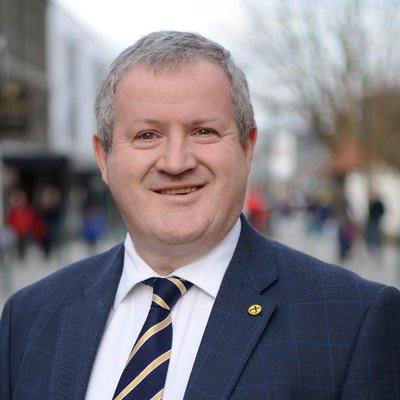Jo Johnson – 2010 Maiden Speech in the House of Commons
The maiden speech made by Jo Johnson, the then Conservative MP for Orpington, in the House of Commons on 8 June 2010.
Thank you, Mr Deputy Speaker, for calling me this evening. The six hours that I have been waiting have truly passed in a flash, such has been the quality of previous maiden speakers, including just now the hon. Member for Newcastle upon Tyne Central (Chi Onwurah). I should particularly like to associate myself with the remarks made by my hon. Friend the Member for Grantham and Stamford (Nick Boles), who is sadly no longer in the Chamber, about the equalities agenda and gay rights.
At the outset, I should make a declaration, as we do a lot of that at the start of Parliaments. Anyone hoping that I will enliven proceedings in the manner of one of my elder brothers, the former Member for Henley, is likely to be disappointed. Private Eye, in the issue on newsstands at the moment, has helped me to set expectations appropriately low. It quotes an unnamed Oxford contemporary, in the first of a series that it is doing on new Members, and that friendly Oxford contemporary of mine says:
“He could not be more different to Boris. It’s as though the humour gene by-passed Jo altogether and he inherited only the ambition gene.”
It is an absolutely fair comment, but I do not really apologise for the humour-ectomy, nor, indeed, for any hint of ambition that the House might detect, because these are serious times and politicians need to be ambitious when the country is in such a mess. History will not forgive us if we flannel around in the House over the next five years and fail to pick the economy up off the floor, where it is at present.
Orpington, the constituency that I am fortunate enough now to represent, has not troubled the House with a maiden speech for 40 years. I am tempted to give Members a double helping, but time will not allow it. That lengthy interlude has arisen because my distinguished predecessor, John Horam, began his parliamentary career not in the idyllic glades of northern Kent, but in the gritty Gateshead West area of Newcastle.
John Horam has the distinction, as many Members will know, of being the only Member to have served in all three parties. He was originally of course a Labour MP in Gateshead, but, disillusioned with Labour’s leftward drift, he dallied with the Social Democratic party in the early ’80s before eventually donning Conservative colours and becoming the MP for Orpington in 1992. By the time he came to give his maiden speech that year, he was of course no maiden, but as a liberal Conservative long before the genre became fashionable, he was at least ahead of his time.
That John’s political journey—his odyssey, in some ways—culminated in Orpington of all places is entirely appropriate. After all, it was in Downe, one of the constituency’s most picturesque villages, that the father of evolutionary biology propounded the earth-shaking theory of natural selection—the most important scientific breakthrough of the past 150 years. It is no surprise to me at all that the people of Orpington inspired Charles Darwin to come up with the concept of the survival of the fittest: meet them and one sees the very best that evolution has done with homo sapiens over the millennia.
Orpington is famous for much more than the man who debunked creationism. I shall not dwell too long on the “Buff Orpington” chicken, admired by poultry breeders for its gentle contours, colourful plumage and succulent breast meat; suffice it to say that they are easy layers, go broody very often and make great mothers. Would it be too much to expect the local Tesco superstore to stock it and support the breeders of that fine bird? I shall keep the House informed of my progress, but my office called Tesco this morning, and it does not currently stock that chicken.
If Orpington’s contribution to science is beyond question, its place in the footnotes, if perhaps not the chapter headings, of British political history is no less assured. In 1954, for example, the constituency almost snuffed out the career of a young Mrs Thatcher. Having fought unwinnable seats in neighbouring Dartford, she sought the nomination for Orpington. In The Croft Tearoom in St Mary Cray, one of the more hard-on-its-luck areas of the constituency, can be found a fine photograph of the young Mrs Thatcher buying her daily milk from a horse and cart in an attempt to impress her local credentials on selectors. She was unsuccessful. Bitterly disappointed at how leading local Tories reckoned her candidacy incompatible with her role as a mother of twins, she wrote to central office to say that she was abandoning all thought of Parliament for many years. Needless to say, British politics would have been very different had she not relented.
I shall not dwell on counterfactuals, but one thing is certain: Orpington would not have gone on to become the totemic seat for the Liberals that it did in 1962 had Mrs Thatcher become our MP. The man who defeated her for the nomination resigned unexpectedly, triggering a famous by-election. A good Balliol man by the name of Eric Lubbock, representing the Liberals, scored an historic victory by overturning a very substantial Conservative majority and chalking up a Liberal gain in an area far away from his party’s traditional heartlands in the west country and the Celtic fringe. The birth of Orpington man sparked a revival that marked the end of the Macmillan era and made Orpington a permanent fixture in Liberal folklore.
I come back to the present and the subject of this debate. The scale of the Conservative victory on 6 May, with its 60% share of the vote, was a resounding endorsement of the Conservative party’s economic programme. The priority now is to achieve an accelerated reduction of the £156 billion deficit and it is one that I wholeheartedly support, as I support the creative and compassionate ways that I know the Government will use to go about that difficult task. The £6 billion of cuts already announced is barely a start in the process. I look forward to the emergency Budget on 22 June and the public consultations on the role of the state, which will follow.
As one who recently spent four years working in one of the fastest growing parts of Asia, with a ringside seat on the emerging economy that is India, I am fully aware of the challenges that globalisation presents to the British economy. I would like to use the time that I have in Parliament to help this country and Orpington constituency meet those challenges.



